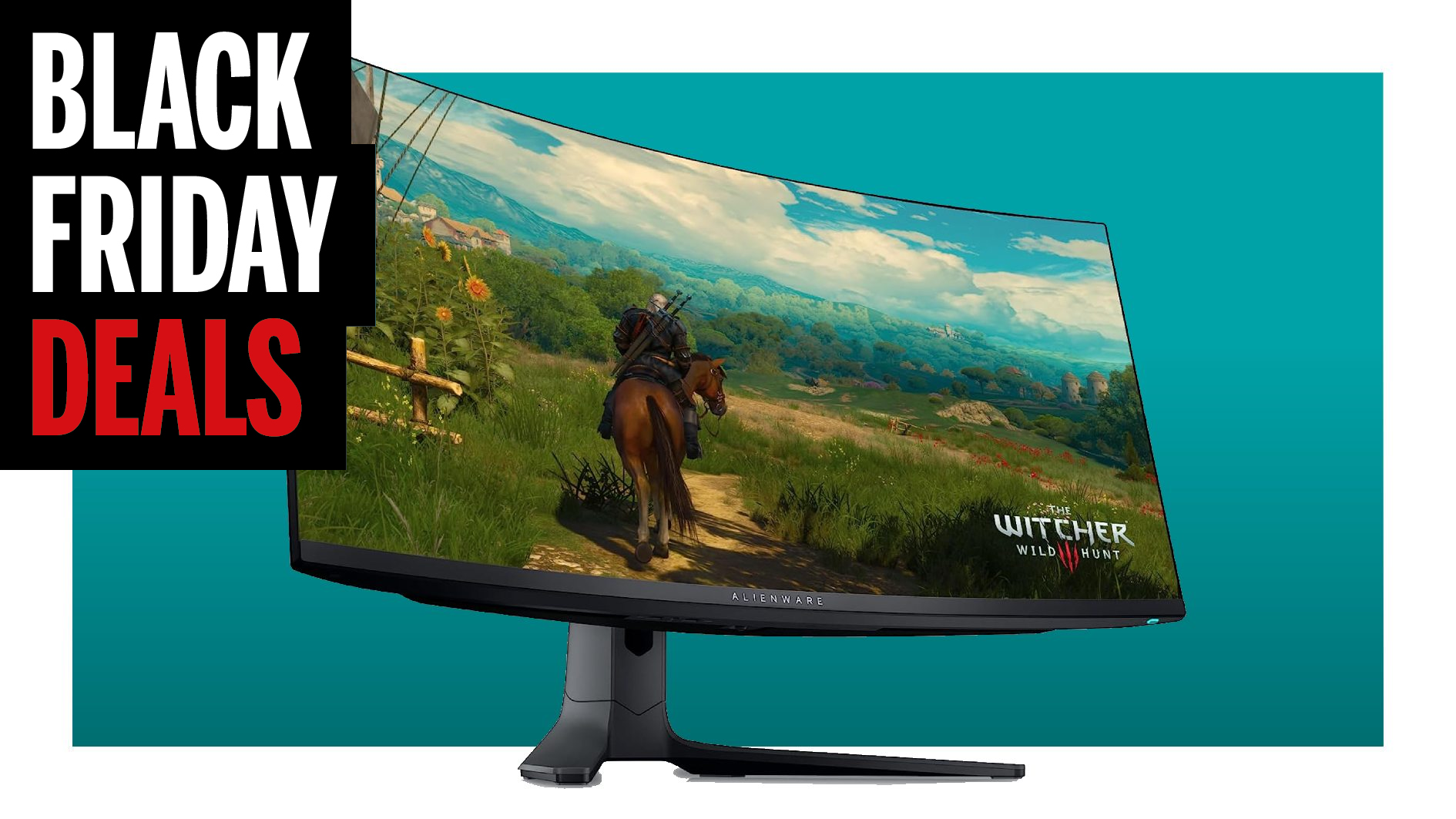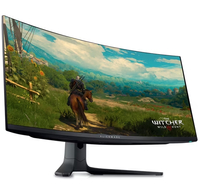Our favorite gaming monitor and a mighty OLED at that is as cheap as we've ever seen it for Black Friday
At $800, this superb OLED gaming monitor is the same price it was discounted at for Prime Day, and a great deal versus some other OLED panels.

Alienware 34 AW3423DWF | 34-inch | 165Hz | QD-OLED | $1,099.99 $799.99 at Dell (save $250)
Alienware's fancy QD-OLED panel just got that little bit cheaper. It's still not exactly entry-level at $800, but think of it as a long term investment that will make every single gaming session pop. Once you've experienced per-pixel OLED-style lighting, you won't want to go back to LCD tech. You can read our Alienware QD-OLED review for more.
Price check: Best Buy $799.99
There are few narratives in PC gaming that I like more than 'the best just got cheaper' and that is exactly what we've got right here with the Alienware 34 AW3423DWF. It's our favorite OLED gaming monitor at the moment and we think that also makes it the best gaming monitor of all.
And even though we saw this drop down to this same price for Fall Prime Day—also stupidly called Big Deal Days—the Alienware 34 is still being heavily discounted down to $800 at Dell and at Best Buy. That's $300 off the list price for this lovely panel, and a full $50 cheaper than it's ever been prior to these big end-of-year sales events.
Back in the Summer Prime Day deals event we got excited about it coming down to $900, so with another chunk of change off that we're happily recommending it again. I doubt it'll come down any lower than this for the remainder of Black Friday, so if you're in the market for an outstanding ultrawide gaming monitor, this OLED is ideal.
- We're curating all the best Black Friday PC gaming deals right here.
Dell makes two different Alienware 34-inch OLED displays, both using Nobel Prize-winning Quantum Dot technology in the Samsung panels, but this cheaper one is the screen we'd rather have on our desk. The AW3423DW and AW3423DWF are essentially identical, but the more expensive one has a 175Hz refresh rate and is a full G-Sync display. This version is cut back to 165Hz (oh no /s) and is a FreeSync Pro panel (and still G-Sync Compatible), but the key thing is that it uses a glossy finish rather than a matte finish on its panel.
That's important here because the whole deal with OLED displays is their incredible contrast and perfect blacks. Saddle that to a matte finish and you end up with a slightly duller image, spoiling the effect. With the glossy finish it looks stunning.
All that aside, we prefer the Samsung OLED panels at the moment—importantly they're a little brighter—but we would recommend setting your taskbar to auto-hide. In long-term testing Rtings has highlighted some OLED burn-in with the Samsung QD-OLED panel, more so than the competing LG OLED panel, and if you have your screen on the desktop a lot that could become a problem for heavy users.
If you're primarily gaming then it won't be a concern at all, it's only if there are consistent, persistent image elements on the screen for a long time.
LG does have the UltraGear 48GQ900 down to $700 right now, anyways, if you wanted a sort of TV-a-like gaming monitor instead.
In terms of full spec, you're looking at a 34-inch curved ultrawide display, running at 165Hz and 3440 x 1440 as the native resolution. As for speed, Alienware rates this monitor at 0.1ms for response time. OLED tech is at least an order of magnitude faster than any LCD-based monitor. Put simply, speed is a non-issue on today's OLED gaming monitors. The response problem has been solved.
Keep up to date with the most important stories and the best deals, as picked by the PC Gamer team.

Dave has been gaming since the days of Zaxxon and Lady Bug on the Colecovision, and code books for the Commodore Vic 20 (Death Race 2000!). He built his first gaming PC at the tender age of 16, and finally finished bug-fixing the Cyrix-based system around a year later. When he dropped it out of the window. He first started writing for Official PlayStation Magazine and Xbox World many decades ago, then moved onto PC Format full-time, then PC Gamer, TechRadar, and T3 among others. Now he's back, writing about the nightmarish graphics card market, CPUs with more cores than sense, gaming laptops hotter than the sun, and SSDs more capacious than a Cybertruck.


